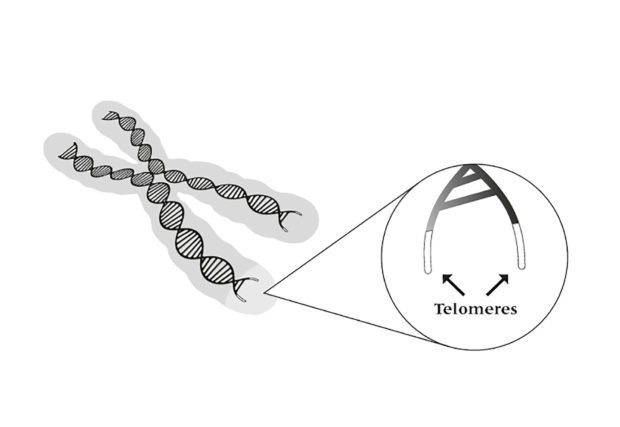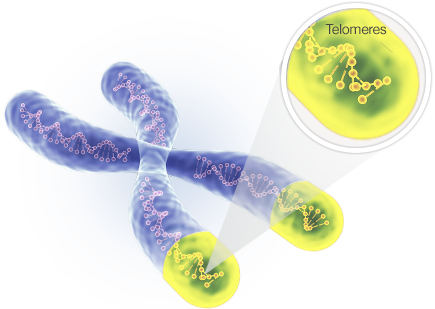Aging is inevitable and no matter how hard we try, we will not be able to turn back the years. However, we may be able to make the years gentler and kinder to our bodies. People often fear aging because they’re worried about their bodies breaking down, but this doesn’t always have to be the case. You can age and still maintain a healthy and agile body.
The Hallmarks Of Aging That Are Aging You
To help us achieve this, researchers are looking to better understand what makes us age so that we can provide the necessary solutions.
In a landmark paper published in Cell in 2013, Carlos Lopez-Otın and a team of researchers put forth nine factors that they believe cause biochemical changes that contribute to the aging process.
There are nine hallmarks of aging, and they include genomic instability, telomere attrition, epigenetic alterations, loss of proteostasis, deregulated nutrient-sensing, mitochondrial dysfunction, cellular senescence, stem cell exhaustion, and altered intracellular communication.
While no sole factor is responsible for accelerated aging, shedding light on these hallmarks can help us better understand the aging process and ensure that we’re living a healthier life as the years go by.
What is telomere attrition?
Telomeres can be found at the end of a chromosome. They are essentially protective caps, working not only to protect our chromosomes from damage or fusing with other chromosomes but they’re also seen as a “biological clock.”
This is because they shorten each time a cell copies itself and once they become too short to function, they cause the cells to age before being disposed of.
Telomere attrition refers to the gradual loss of telomeres on chromosomes and while this is normal, the accelerated loss of telomeres and subsequent premature cell deaths are a cause for concern.
What’s shortening our telomeres?
Age. As the years go by, your telomeres will shorten but there are other factors that can accelerate the pace at which telomeres shorten. These include:
- Smoking: A study found that telomere length was shorter among smokers when compared to those who never smoked.
- Obesity: Obese individuals have been found to have shorter telomeres.
- Mental health issues: A study found a strong link between shortened telomeres and mental health disorders such as depression, anxiety, and stress disorders.
- Pollution: A 2018 review found that a majority of studies supported the association between shorter telomeres and air pollution.
- Sedentary behavior: Research has suggested that lack of exercise may affect telomere length.
Telomere attrition and longevity
A meta-analysis published in Ageing Research Reviews set out to better determine how telomere length may influence lifespan. After analyzing twenty-five studies, the researchers found that short telomeres were associated with increased all-cause mortality risk in the general population.
 The reason for this may be due to the different health risks that shortened telomeres may increase the risk of:
The reason for this may be due to the different health risks that shortened telomeres may increase the risk of:
Heart disease
Research is still in its infancy, and more studies are needed to confirm the association between short telomeres and an increased risk to cardiovascular health. That said, current studies have proposed that short telomeres may be a risk factor for heart disease.
Cancer
Now, this is where things get interesting. Referred to as the ‘Telomere Length Paradox’, it appears that individuals with either very short or very long telomeres face an increased cancer risk.
With regard to elongated telomeres, researchers believe that longer telomeres are more fragile, accumulating DNA damage and thus increasing the risk of cancer.
Neurodegenerative disorders
While the study is nonfiction, a 2022 review looking at the association between telomere length and neurodegenerative diseases found that over 50% of papers reviewed reported that shorter telomere length could be a definite risk factor for neurodegenerative disorders.
Osteoporosis
Declining bone mass and poor bone health can cause a host of problems, especially the increased risk of fractures, which can then increase the risk of mortality.
That said, a study examining the link between telomere length and bone health found that women with longer telomeres had lower odds of having osteoporosis. It should be noted that compared to men, women are more likely to develop osteoporosis.
How can I protect telomere length?
As mentioned, the length of your telomeres is going to shorten, and you can’t stop that. However, what you can do is ensure that they shorten at a healthy rate. To do so, try adopting a few of these habits:
Enjoy a plant-based diet
The Mediterranean diet is considered to be the healthiest diet in the world, particularly due to its emphasis on plant-based foods and whole grains and the exclusion of processed foods, sweets, and red meat.
If you’re looking to adopt a plant-based diet, we recommend that you try this one, especially because research has linked adherence to this diet to longer telomeres.
Exercise
We all know that exercise can help improve our health, and it may even help us live longer – especially if we stick to it.
According to a review published earlier this year that evaluated studies examining how exercise influences telomere length, exercising for more than six months was associated with positive changes in telomere length.
Manage stress levels
Heavily stressed individuals have been found to have shorter telomeres, so managing your stress levels can help you manage telomere length.
Meditation, talking to someone, journaling, listening to your favorite songs, and taking a social media break are great ways to reduce your stress levels.
Sleep well
Sleep can affect your health in a number of ways, and it can also influence telomere length.
One study examined sleep and telomere length amongst a group of menopausal women and found that longer sleep duration was associated with longer telomere length in women. If you’re having trouble getting your eight hours, might we suggest essential oils or creating a bedtime routine?
Supplement with vitamin D
According to a study published in The Journal of Frailty & Aging, higher levels of vitamin D were associated with longer telomere length.
While vitamin D is known as the sunshine vitamin because you get most of it from the sun, there are other ways to increase your dose. In addition to using supplements, you can also eat oily fish such as salmon and mackerel, as well as liver and fortified foods.
Conclusion
Getting chronologically older cannot be halted and it appears that neither can the shortening of your telomeres. However, that doesn’t mean that you need to succumb to accelerated biological aging. In fact, by taking the proper precautions, you can go on to live a long and healthy life, even as your telomeres get shorter.





![women [longevity live]](https://longevitylive.com/wp-content/uploads/2020/01/photo-of-women-walking-down-the-street-1116984-100x100.jpg)









